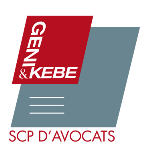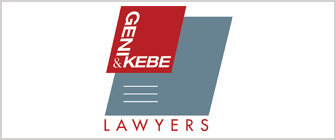Mouhamed Kebe and Rahimine Toure of Geni & Kebe in Dakar look at the developments in the country’s business landscape
Overview of the legislative framework of the Cote d’Ivoire
On regional level, Cote d’Ivoire belongs to three major regional entities:
• The Economic Community of West African States (ECOWAS) is the regional group of the West African countries. The members of the ECOWAS are Benin, Burkina Faso, Cape Verde, Cote d’Ivoire, Gambia, Ghana, Guinea, Guinea Bissau, Liberia, Mali, Niger, Nigeria, Senegal, Sierra Leone and Togo.
• The West-African economic and monetary Union (WAEMU) is the regional entity of eight francophone countries of West Africa, namely Benin, Burkina Faso, Cote d’Ivoire, Guinea Bissau, Mali, Niger, Senegal and Togo.
These countries share the same currency, the same central bank (BCEAO), and the same business law.
• The Organisation for the Harmonisation of Business Law in Africa (OHADA) is a legal system of 17 African states namely Benin, Burkina Faso, Cameroon, Central African Republic, Comoros, Republic of Congo, Republic Democratic of Congo, Cote d’Ivoire, Gabon, Guinea, Guinea Bissau, Guinea Equatorial, Mali, Niger, Senegal, Chad and Togo.
These countries share a common business law regarding commercial law, corporate, securities, debt recovery, insolvency, arbitration, accounting, transport of goods by road. They have the same common court of justice and arbitration.
On a domestic level, Cote d’Ivoire has been for long decades the engine of the West Africa francophone economy, driving more that 40% of the WAEMU economy. After a decade of political and economic crisis, the country’s aim is to recover its former status. In this effect the new authorities have taken considerable steps to improve the business environment and attract both domestic and foreign investment.
The new Investment Code
A new Investment Code has been adopted in 2012, (Ordinance No. 2012-487 of June 7 2012). The new Code which replaces the 1995 one has set up lot of measures aiming at making Cote d’Ivoire more attractive for domestic and foreign investment.
Several sectors are eligible to the Investment Code. They are mainly the following:
Agriculture, Breed, Fishing, Mine, Port, Airport, Energy, Arts, Health, Tourism, Education, Manufacturing, Other sectors with the exception of Construction and Public Works, Trade, Transport, Banking & Financial services.
The new Code grants several incentives mainly on tax. The advantages depend on the area where the business is operated. There are three areas known as A, B, and C
-Area A is the Abidjan District
-Area B is any district with a population of more than 60,000 people
-Area C is any district with a population of less than 60,000 people
The new Investment Agency (CEPICI)
CEPICI was set up in 2012 to provide information on the investment climate and assist investors in the formation of new companies through a “one-stop-shop”. This new entity aims at reducing the process of starting a business from 32 days to 48 hours.
The new Commercial Court
On July 2012, a new commercial court was set up. The court is dedicated specially to business cases. It is sitting in Abidjan, the main economic city of Cote d’Ivoire; but it is not excluded that similar courts will be set up in other main cities of the country.
With this new court, all disputes arising under the scope of OHADA Acts will be settled in a swift timeline, by judges trained in commercial law.
At the end of 2013, the Tribunal has settled 1200 cases and registered 3,000 businesses.
The new court has played a key role on Cote d’Ivoire rank in the Doing Business 2014. The country shifted from 173 in 2013 to 167 in 2014. On the enforcing contracts topic, it shifted from 127 to 88
The financial and banking system
Financial and banking systems in Cote d’Ivoire are governed by the regulations of the WAEMU, the rules of BCEAO and domestic law relating to banking regulations.
• The regulations of the WAEMU
- Rules No. 09/2010/CM/UEMOA relating to external financial institutions of the Members States of the Economic and Monetary Union West African amended by Rule no. 09/98 of December 20 1998 relating to external finance relationship of the WAEMU States Parties
• BCEAO Directives
- The legislation dealing with banking derives mainly from BCEAO directives, which consists of several rules addressing inter alia the following issues:
- Procedures for withdrawing approval of financial institutions credit sales
- Mandate of the auditors of credit companies of the WAEMU
- Classification, operations and legal form of financial institutions
- Process of getting approval to operate a bank or a financial institution within the WAEMU zone
• The domestic law
- Act No. 90-589 of July 25 1990 applies to banks and financial institutions carrying on their activities on the territory of the Ivory Coast with the exception of the BCEAO and other international financial institutions
- Decree No. 90-593 of July 25 1990 on the Convention on the establishment of the Banking Commission
The bond market
Private and government bonds can be purchased by individuals or companies. In 2011 the country resumed coupon payments on $2.3 billion of defaulted Eurobonds. The Eurobonds due 2032 have surged 50% in 2012 after the new government pledged to bondholders in January that the June payment would be made. The former government halted payments following a post-election crisis in November 2010.
Cote d’Ivoire is under an IMF programme, which runs until the end of 2013, which is subject to conditionality to contract new loans. This makes access to the Eurobond market complicated. However the country is planning to raise up to $1 billion in a sovereign bond by 2014 according to the Prime minister.
The Regional Stock Market (BVRM) returned to Abidjan in 2011, after temporarily relocating. It is mainly dominated by Ivoirian and Senegalese firms, and has a market capitalisation of approximately $5 billion with 37 companies listed. The Regional Council for Savings Investments regulates the WAEMU securities exchanges market.
The African Bank of Development will be also returning to Abidjan after ten years of relocation in Tunis.
Partner
Geni & Kebe
Dakar
About the author
Mouhamed Kebe is the managing partner of Geni & Kebe, a full service law firm based in Senegal with nine affiliate offices across Francophone Africa. His practice focuses on corporate and investment law. He also oversees commercial transactions including joint ventures, banking & finance, natural resources, PPP.
He is highly recommended as a Leading Lawyer in the IFLR1000 Energy and Infrastructure Guide.
Mouhamed is graduated from the University of Dakar Cheikh Anta Diop (Senegal) and the University of Essex (United Kingdom), and earned a certificate in International Commercial and Investment Arbitration from the University of London.
He is qualified with the Senegalese Bar Association (1993) and is member of the Law Society of England and Wales (International Division), the American Bar Association, and the International Bar Association.
Rahimine Toure
Jurist
Geni & Kebe
Dakar
About the author
Rahimine Toure graduated in comparative law (private law-public law) from the University of Perpignan (France), and graduated in International Relations from the University Cheikh Anta Diop of Dakar Ucad (Senegal). He joined Geni & Kebe in 2013 through the internship programme “opportunities for fresh graduates”. Rahimine practises investment law, commercial law, labour law, tax law, and the public international law.



